
New paper: Metaimagining and Embodied Conceptions of Spacetime
We live in a four-dimensional universe but our minds and bodies struggle to perceive four dimensions. How can learners reconcile Einstein's abstract theory with their experiential understanding of space, time & gravity?

EARLI Mentoring Grant: Embodied Cognition in Physics Education
I'm so happy to have been awarded an EARLI Mentoring Grant 2019: I will visit Jesper Haglund at Karlstad University, Sweden, to learn more about embodied cognition in Science Education. Yay!
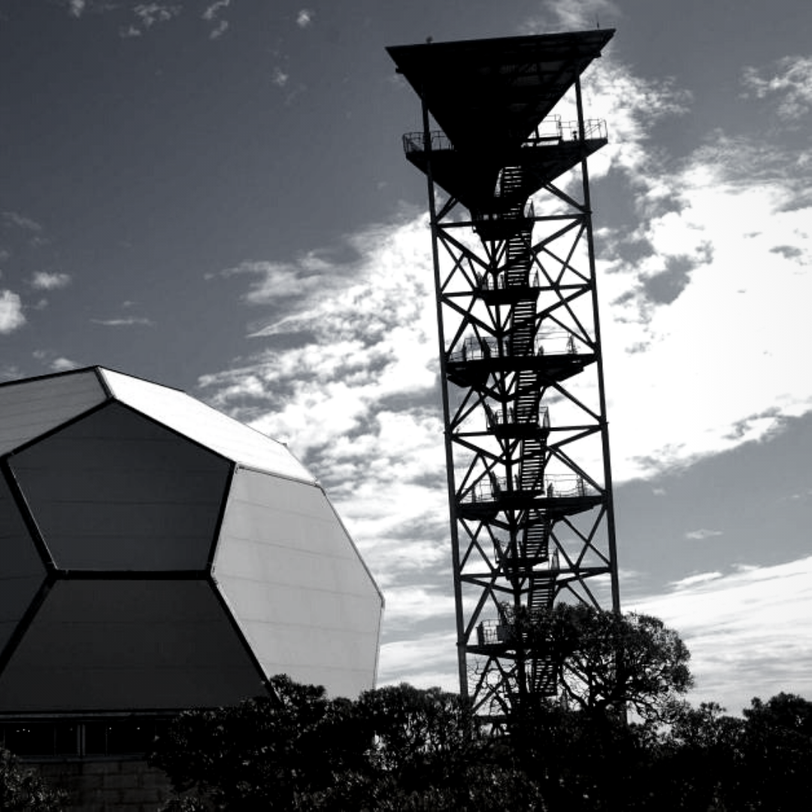
New paper out: Free fall in curved spacetime
How can we visualise gravity in general relativity? My new article in Physics Education presents a new digital model that illustrates how warped time gives rise to gravity. I hope the model will act as a supplement to the use of the popular rubber sheet model that only takes spatial curvature into account.
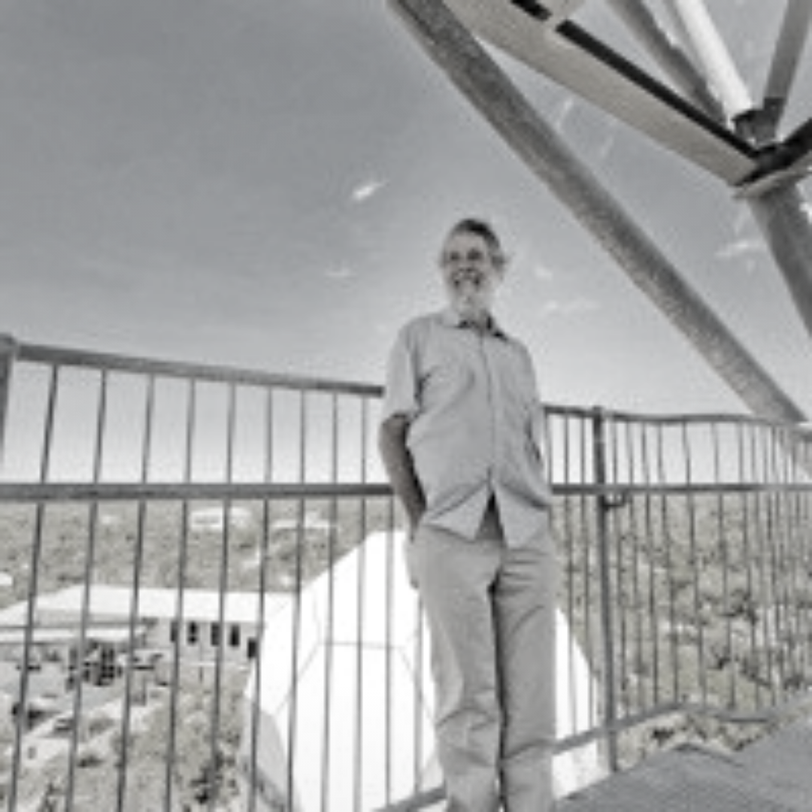
Ground-breaking international research project in Einsteinian Physics Education
Congratulations to Prof. David Blair and his team at the University of Western Australia who have been awarded a grant to integrate Einsteinian Physics into Australian curricula and to evaluate learning progression through primary and secondary school!

Stretching the Imagination
A popular analogy compares the geometry of curved spacetime to a rubber sheet. Yet, science educators have shown that this representation can get in the way of a more abstract understanding of Einstein’s theory of gravity. The findings hint to a deeper mechanism about how human cognition works.
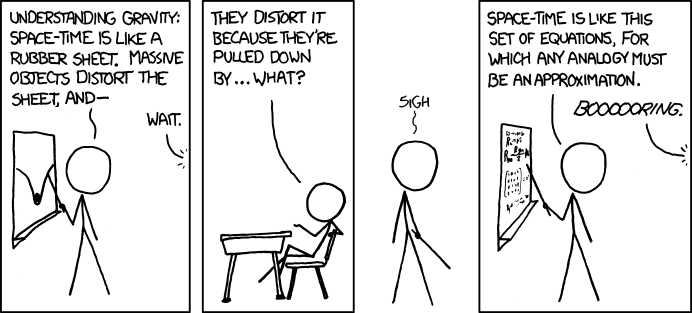
Understanding Curved Spacetime
According to general relativity, we live in a four-dimensional curved universe. Since the human mind cannot visualize those four dimensions, a popular analogy compares the universe to a two-dimensional rubber sheet distorted by massive objects.

Academic adventures in Australia
I recently moved to the other end of the world in the name of science. Join me on my academic adventures on my travel blog hosted by Titan, the science magazine of the University of Oslo 🌏

Navigating Four Dimensions
In curved spaces, geometry can play tricks on you. And tricky geometry lies at the heart of Albert Einstein’s theory of general relativity. I wrote a feature for Lateral Magazine mapping out a geometric way of teaching relativity.
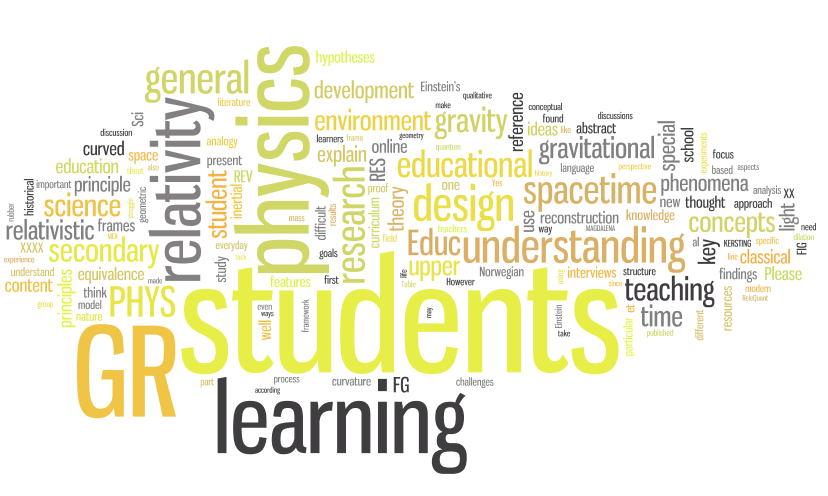
General relativity in upper secondary school
Albert Einstein’s theory of general relativity is rarely present in school physics curricula due to its abstract nature. Yet, our research suggests that upper secondary students can obtain a qualitative understanding of general relativity. Read our latest research article to see how we introduced students to the world of relativity.
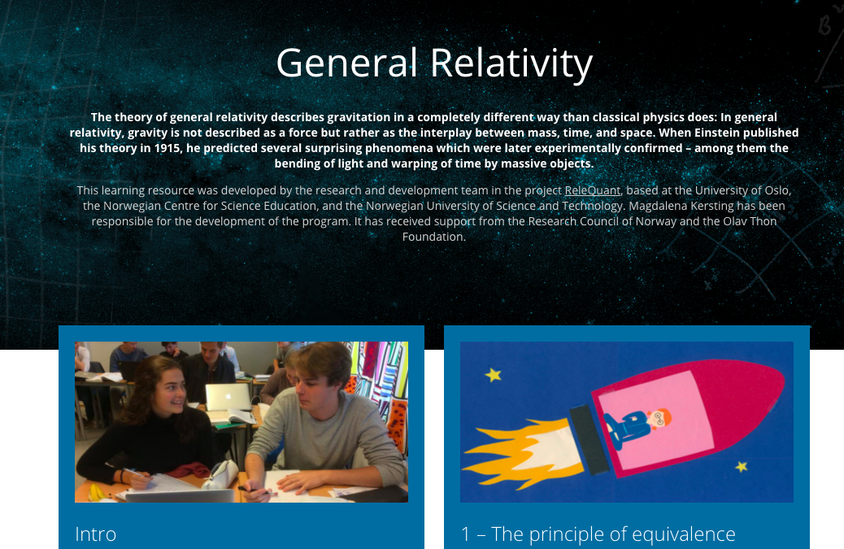
General Relativity on Viten
Within project ReleQuant, I developed an online learning environment about general relativity targeted at upper secondary school students. In January 2018, the Norwegian Centre for Science Education launched the program on the learning platform Viten. You can find the Norwegian version of the program here.

Why high school students should learn about Einstein's most revolutionary idea
Despite our better knowledge, physics in schools is still taught from an outdated 19th century point of view. I think students should learn about curved space and warped time from an early age. Why? Take a look at my article on Titan.